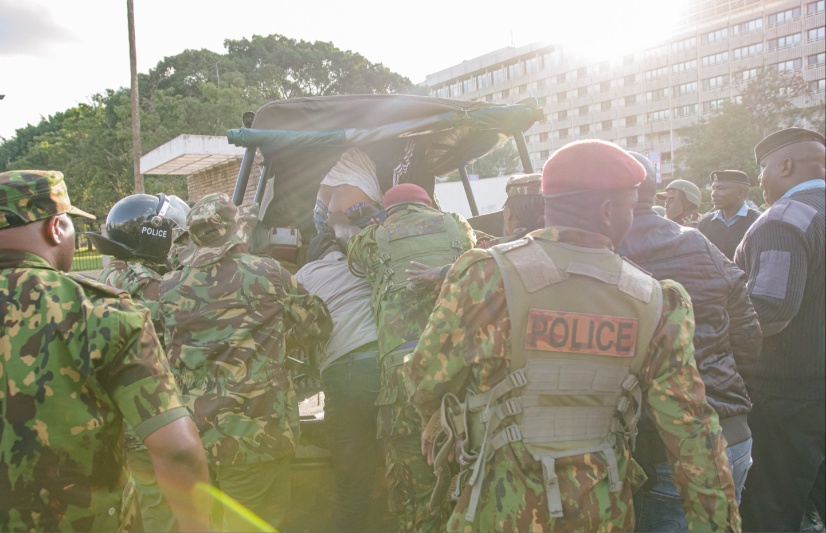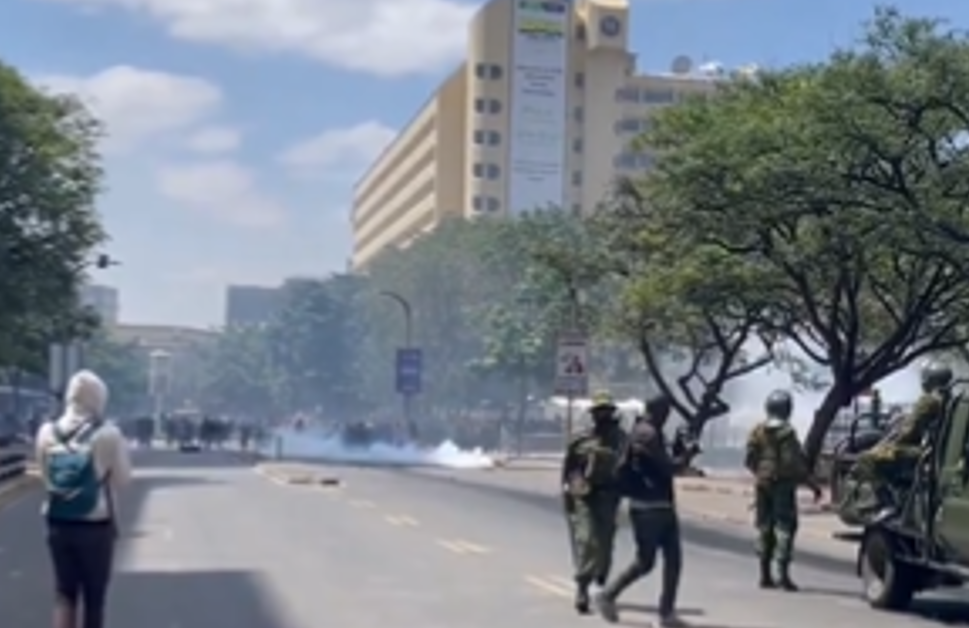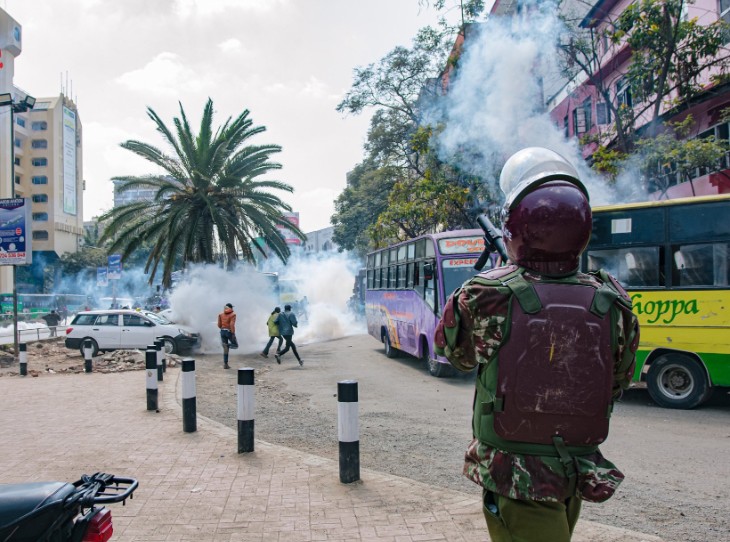Amnesty International, alongside several human rights organizations, has published a new report detailing harrowing accounts from the Gen Z-led Occupy Parliament protest that occurred on June 25, 2024.
The protest, which drew thousands of young Kenyans to Nairobi’s Central Business District (CBD), marked a pivotal moment in the ongoing struggle for social justice and accountability amid rising discontent over economic policies.
The report, released on September 25, 2024, documents incidences of extensive police brutality during the demonstrations, revealing that law enforcement employed excessive force against largely peaceful protesters.
Eyewitness accounts in the report describe scenes of chaos as police deployed tear gas, water cannons, and live ammunition, leading to at least six confirmed deaths and hundreds of injuries.
Scope of the report
The report is built on testimonies from 23 eyewitnesses, including protesters, medical professionals, and legal experts, alongside a thorough analysis of over 45 videos and 100 photographs taken during the protest.


“The June 25 protest stands out as the most significant of many nationwide protests held between June and August. It was the first time protesters in Kenya accessed parliament, a critical government infrastructure, in response to the controversial Finance Bill 2024.
“Six human rights, legal, and medical organizations, including Amnesty International Kenya, The Law Society of Kenya, Defenders Coalition, Article 19, Medics for Kenya, and the Independent Medical Legal Unit, have based their findings on interviews with 23 eyewitnesses, lawyers, and medical professionals. They also analyzed over 45 videos and 100 photographs taken during the events in Nairobi on June 25,” part of the report read.
The report continued… “The evidence, documented between July 8 and August 9, confirms that Kenyan police unlawfully used both lethal and less-lethal weapons, including tear gas, water cannons, and batons.
“Police officers fired tear gas at protesters, bystanders, and medics, arbitrarily arrested peaceful demonstrators, and even used live ammunition.
Findings indicate that police not only failed to adhere to international human rights standards but also engaged in unlawful practices, such as arbitrary arrests and the use of lethal firearms against unarmed civilians.
“These actions violate international human rights laws and standards, including the UN Basic Principles on the Use of Force and Firearms by Law Enforcement Officials and the UN Human Rights Guidance on Less-Lethal Weapons in Law Enforcement.”
The protest was organized in response to the government’s proposed tax reforms, which many deemed regressive, adding to the existing burden on citizens already grappling with high living costs.
“It was our right to protest, yet the state responded with violence. This shows a disregard for our constitutional rights,” Irungu Houghton, Executive Director of Amnesty International Kenya, said.
Face hidden, detentions
The report also raised concerns over the use of disguised law enforcement and unlawful detentions.
“Many police officers, including those in uniform, concealed their identities by hiding their faces or wearing masks. Videos also show armed men in civilian clothes working with the police, riding in unmarked vehicles. Such actions contravene international human rights standards, which require law enforcement to be clearly identifiable,” the report stated.


“Amnesty International and its partners have documented cases of individuals held in dark rooms, interrogated, and released after 24 hours,” it added.
In the aftermath, the report underscores calls for a thorough investigation into the events of June 25, urging the Kenyan government to establish a Judicial Commission of Inquiry to hold accountable those responsible for the violence.
Additionally, the report emphasizes the need for compensation for victims and their families.
“Kenyan authorities must conduct prompt, thorough, and independent investigations into all human rights violations committed during the protests, including the killing of protesters. Those responsible must be held accountable, and victims of unlawful police force, along with the families of those killed, should be compensated,” Grace Wangechi, Executive Director of the Independent Medico-Legal Unit (IMLU), says in the report.
The Occupy Parliament protest not only highlighted the frustrations of Kenya’s youth but also raised critical questions about the state of human rights in the country.
As calls for justice intensify, the international community continues to monitor Kenya’s response to these alarming findings.










